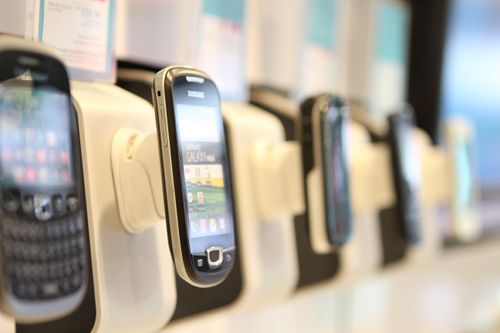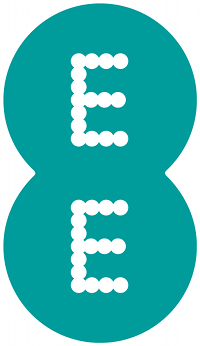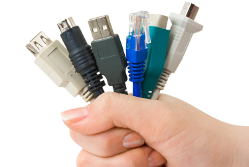Blog posts tagged mobile internet
Five things 4G will do for your business
 4G, the new mobile technology that allows for superfast mobile internet connections, is just beginning to have an impact on the UK telecoms market.
4G, the new mobile technology that allows for superfast mobile internet connections, is just beginning to have an impact on the UK telecoms market.
However, although 4G has been talked about for several years now, many people are still in the dark about what it’ll do for their businesses. That’s why we’ve compiled these five key benefits:
- It lets you do more on the move.
- It’ll make remote working easier.
- It could cut your costs.
- It may boost your productivity.
- It’ll increase your mobile sales.
The key thing about 4G is that it really boosts the connection speed for mobile devices. That means you can do more on the move.
In fact, some 4G connections should offer speeds comparable to or faster than fixed-line broadband, which means tasks like working on shared documents, videoconferencing and more all become practical.
How to get 4GEverything Everywhere is the only company currently offering 4G mobile. It covers major UK cities. EE is the same company as T-Mobile andOrange, so if you have a mobile contract with them you may be able to move to 4G even if you're within your minimum contract period. O2 and Vodafone promise preferential 4G upgrades to some customers once their 4G networks become available later this year. |
Experts predict that 4G will eventually cover up to 99% of the UK population, which means even people living in rural areas will have a connection that’s fast enough to make remote working practical.
4G costs will drop as more mobile networks launch their 4G services. But 4G could trigger big savings in unexpected areas. As more employees are able to work remotely, you may find you can move to a smaller office or reduce your power bills.
4G will make it more practical to hold online meetings and use collaboration tools smoothly, which could result in less time spent travelling to meetings (and more time spent working).
Your customers will be using 4G too, which means they’ll find it easier and quicker to browse your website. That’ll encourage them to buy products on the move (if your website works well on mobile devices), increasing your sales.
Ultimately, 4G is an engine for economic growth. It’ll bring wide benefits helping companies to grow and encouraging investment in businesses from both the UK and abroad.
Tube Wi-Fi pricing revealed as not-so-cheap

(Image: Flickr user Alberto Bissacco.)
If you live in, work in or travel to London then you might have been enjoying free wireless internet in Tube stations for the last few months.
Virgin Media has installed wireless access to nearly 100 stations. But from the start of February, it'll stop being free.
The cost of Wi-Fi underground
If you're a customer of Virgin Media Broadband, Virgin Mobile Pay Monthly, Vodafone, EE, T-Mobile or Orange then you'll be able to register to continue using Wi-Fi on the Tube for free.
But if you're not with any of those companies then you're going to have to fork out. You can buy access for different periods of time:
- One month: £15
- One week: £5
- One day: £2
There's a special offer on at the moment that gets you three months for the price of one, but even with that in place to tempt people, it's hard to see customers flocking to use the service.
You don't linger on the Tube
Tube stations are places you pass through. You don't linger to use the internet access and other facilities. You want to get on your train and to your destination as quickly as possible.
Say I use the Tube twice a day to commute to the office. Now, let's be generous, and say I spend ten minutes in stations in the morning, and ten minutes in the evening. Discounting weekends, that's roughly 400 minutes a month where I might be in a position to use the Wi-Fi.
At £15 a month, that works out to about 3.75p per minute of wireless internet. Is that really worth it, to check Twitter and your email? I don't think so - especially when you can almost certainly get mobile internet the moment you emerge from a station.
Prepare for your journey
If you've become addicted to the free internet while it's been available, don't worry. It's easy enough to download emails and the latest Tweets before you head underground. Any emails you write on the Tube will be sent as soon as you emerge onto the streets.
You can even use a service like Pocket to cue up news articles or websites to read on your journey.
The appeal of free underground internet access is clear. But as soon as there's a cost involved, it's not worth the hassle and expense.
Of course, Virgin Media probably doesn't expect the service to attract many paying users. It's more interested in providing mobile and broadband customers with a perk - and giving potential customers a reason to switch to these services.
4G can really help your business, finds 4G network

If you don't live in one of the cities where you can get a signal, news that 4G mobile is now available in the UK may not have made much of an impact on you. And even if you do live in an area that's covered, you could have been forgiven for losing interest once you saw how network Everything Everywhere (EE) has chosen to price its tariffs.
Significant 4G benefits
Your 4G optionsEverything Everywhere is the only company currently offering 4G mobile. EE is a new brand from T-Mobile and Orange, so if you have a mobile contract with them you may be able to move to 4G even if you're within your minimum contract period. O2 and Vodafone both promise preferential 4G upgrades to customers with certain mobile handsets once their 4G networks become available next year. |
EE has now released research into the business benefits of 4G. And they show a considerable upside to the technology, even when you allow for the fact that a 4G provider is never going to play down the possibilities of its service.
The survey examined how 4G is used by small and medium-sized businesses in countries where it's been available for a while. Some of the key findings were:
- 74% of firms using 4G in the US say it's helped them innovate and jump ahead of the competition. It seems particularly useful for companies with workers in the field. For instance, construction workers can use 4G to quickly send large amounts of information back to head office.
- Eight out of ten US firms with 4G say it helps them get more done on the move, and nearly half reckon it's actually saved them money by enabling flexible working so they can reduce office space.
- Small firms in the UK have high expectations of 4G. 59% expect it will help them increase productivity and 38% think it will improve staff well-being and motivation.
Interestingly, 4G also lies at the heart of some interesting innovations. The survey cites a CCTV company that's been able to use 4G to transmit footage instead of having to dig up streets to install cables. And a German car manufacturer is soon to launch a car with a 4G hotspot built in - so you can get connected as you travel.
Too early to switch
There is certainly demand out there for faster mobile connections. But for most companies, there's no compelling reason to switch yet. What's more, EE is the only network currently offering 4G at present. Once other providers enter the market next year there's an excellent chance the competition will force prices down.
For those two reasons, the wisest move for most companies is to wait and see how 4G pans out. Besides, the BBC found considerable variation in connection speeds - so there's no guarantee you'll see the full benefits yet.
Be one of the first to get iPhone 5 with 4G
 Last week's iPhone 5 launch was thin on surprises, but many will have been excited to see that the new iPhone includes 4G connectivity. This new mobile internet internet standard allows for much faster connections than the current 3G networks.
Last week's iPhone 5 launch was thin on surprises, but many will have been excited to see that the new iPhone includes 4G connectivity. This new mobile internet internet standard allows for much faster connections than the current 3G networks.
We tested a 4G connection earlier this year and we were impressed. It managed to beat most broadband connection speeds convincingly, even from the top deck of a number 25 bus.
4G is coming soon
Back then it looked like we wouldn't see 4G in the UK till next year. But things have changed since, and EE - a new network from the same people who run Orange and T-Mobile - is set to launch 4G in selected UK cities before the end of the 2012. Superfast mobile connections could be closer than you think.
In a bit of a double blow to the other UK mobile networks, not only is EE launching 4G first, but it also looks like it'll be possible to get an iPhone 5 on the new network pretty much from day one.
Sign up now for a 4G iPhone
If you do want to be a 4G trailblazer with an iPhone 5 the advice is to move quickly. Pre-order your iPhone 5 now with Orange or T-Mobile and you'll be able to move to a 4G EE contract once the network launches properly. And - of course - in the meantime you'll be able to use your shiny new iPhone 5 on the Orange or T-Mobile networks.
You will have to lock yourself into a two-year contract (at a minimum of £36 a month), and pay anything up to £269 up front for the phone, depending which model you want and which monthly plan you choose.
It's also not clear exactly how much an EE tariff will cost, although you should be able to switch without penalty and it sounds like prices should be fairly comparable.
In all, if you want to be at the forefront of mobile internet access then this doesn't look to be a bad way of going about it.
(Before you order, make sure you have a read of the EE website. At launch it looks like 4G will only be available in London, Birmingham, Leeds, Cardiff, Bristol, Edinburgh, Manchester, Liverpool, Glasgow and Sheffield, with more cities added by the end of the year.)
Couch commerce and the convenience factor

Do you use your mobile when you're on the couch? (Image: the dailyenglishshow on Flickr.)
Mobile commerce is becoming big business. Recent research suggests that by 2017, the total value of mobile transactions will exceed $730bn. That's about £465bn - or enough to pay for the Olympics around 50 times over.
Unless you've been walking around with your eyes shut lately, that probably doesn't come as much of a surprise. Mobile internet access has gone through the roof, with people using their smart phones everywhere. And where potential customers go, companies tend to follow.
The convenience factor
There's a big convenience factor at work here. Done well, mobile commerce can be seductively straightforward. Take online commerce trailblazers Amazon. Finished your book but still have two hours of a train journey to get through? Just buy another book to read on your Kindle, there and then.
Businesses of all sorts are tapping into that convenience factor - not least the supermarket giants. Tesco is trailing a rather-contrived 'virtual supermarket' at Gatwick Airport, where you can use your smart phone to scan items on a screen for delivery when you get back from your holidays. And Sainsbury's reckons its new mobile optimised website has helped increase its online sales by 20%.
Sure, what's right for the supermarkets isn't always right for smaller companies. But in this case, if you're thinking it's probably is time for you to shape up your mobile commerce experience, you're probably right.
Dont forget couch commerce
Even if your business doesn't sell online, you need to be mindful that a growing proportion of your website visitors will be using mobile devices. Do you want to exclude them from learning about your company?
Before you get started, there's one other thing to bear in mind: it doesn't always follow that mobile internet users are out and about.
Actually, a significant proportion of people use mobile internet when they're at home, because it's usually easier to reach for a smart phone than start up a PC.
Dubbed 'couch commerce', this phenomenon means that the typical image of a mobile internet user as someone with only a few moments to spare at a bus stop or on a train could be inaccurate. And that might influence the information you show them.
Infographic: is now the time to embrace mobile commerce?
Statistics provided by SellerDeck
A lot has been written about selling online through your website. And it's true that the burgeoning internet shopping sector has generated many a successful business.
Now, as mobile internet access gets better and smart phones become more common, people are starting to make purchases with their phones. That means having a mobile website or effective mobile app could lead to more sales.
Our infographic explains more:
- Beginner's guide to building an app
- Mobile apps vs. mobile websites
- How to design for the mobile web
We created this infographic using a new tool called infogr.am. Look out for a future blog post reviewing this new service.
4G mobile speeds - next-gen mobile broadband tested
 Your mobile phone almost certainly has 3G mobile broadband built in. It’s the technology that enables you to send and receive emails, view web pages and download Google Maps on the move.
Your mobile phone almost certainly has 3G mobile broadband built in. It’s the technology that enables you to send and receive emails, view web pages and download Google Maps on the move.
But there’s something faster on the horizon. 4G is the next generation of mobile internet connection. It promises greater reliability and much, much faster speeds. If it lives up to the hype, it could change the face of mobile working.
4G mobile data in action
While some countries – including the US, Germany and Sweden – have already begun rolling out 4G networks, we’re somewhat behind in the UK. However, O2 is running a trial of the system in London. I’ve been lucky enough to be a part of it, and so far my experiences suggest 4G broadband really could revolutionise mobile internet access.
With only 25 masts around London, O2’s 4G coverage is hardly ubiquitous. But then it is a just a trial. And when you’re in a coverage area, the access speeds are superb.
To use the trial, I had to connect via a 4G dongle, which plugs in to my laptop. I first tried it in a McDonald’s near King’s Cross station.
Initially I was connected at a download speed of over 13 megabits (Mbps) per second and an upload speed of around 0.5Mbps. The average speed of a home broadband connection is a little over 7Mbps, so that didn’t seem too shabby – although it was a long way off the theoretical maximum of 150Mbps or so.
4G mobile speeds on the move
Still, I knew I could do better, so I headed out to try some different locations. From the top deck of a number 25 bus I maxed out at 15.5Mbps down and – surprisingly - 25Mbps up.
I switched to the pavement just in time to catch a torrential rain shower, and after sheltering my laptop and dodging raindrops, I took shelter in a pub just off Oxford Street. Sat in the window and sipping a cup of tea (honest!) I hit the jackpot with a download speed of 40Mbps and 23Mbps upload.
That’s really fast (faster than some BT Infinity broadband packages), but to illustrate just how fast, I tried a few tests. A video call through Skype barely warmed up the connection, so I fired up the BBC’s iPlayer.
Streaming video requires a fast connection, yet I managed to stream four different programs simultaneously, without any slowdown, pauses, or interruptions to the video at all. Can you do that with your home broadband connection?
Strong signal = fast 4G
So, there you go. If you’re looking for a fast 4G connection in central London, you could do a lot worse than head for the pub.
But seriously, my brief experiences with 4G technology certainly suggest it has the potential to put an end to today’s mobile internet frustrations.
Of course, there are some caveats. My sojourn found excellent speeds where the signal was strong. But maintaining a strong signal across the UK is going to require a fast rollout of new equipment from the mobile operators. One of the issues with 3G is its patchy coverage in rural areas. There’s no guarantee 4G will be any different.
Network operators will also face challenges depending on which parts of the radio spectrum they use. The available bandwidth is much higher at some frequencies than others, and the frequencies used also affect the strength of connections inside buildings.
We all need 4G mobile speeds
However, the ability to have genuinely fast internet access on a laptop, tablet or mobile phone is going to change how we all use the internet and do business. It is certainly going to drive more business into the mobile environment.
For example, Timico (the company I work for), gives its sales force iPads so they can demonstrate our applications and customer portal. An iPad combined with a 40Mbps suddenly becomes a low-cost teleconferencing system than you can use anywhere.
And 4G can provide a workable backup to the fixed line connection at your office, so the chance of being affected by an internet connection outage will drop considerably.
Everything about my experience suggests 4G could be a game-changer. Now we just need to get on and roll it out across the country!
- Finding the right mobile internet device
- Are tablet computers right for business?
- Mobile internet access explained
Trefor Davies is chief technology officer at Timico. This post was adapted from a post on Trefor’s own blog.
Why are there so many different connectors?
 If you were listening to Radio 4's Today Programme this morning you might have heard the BBC's technology correspondent Rory Cellan-Jones attempting to broadcast live from Barcelona over a state of the art 4G mobile phone connection.
If you were listening to Radio 4's Today Programme this morning you might have heard the BBC's technology correspondent Rory Cellan-Jones attempting to broadcast live from Barcelona over a state of the art 4G mobile phone connection.
There’s a big mobile technology conference happening in Barcelona at the moment and 4G is the 'next generation' mobile internet connection, promising speeds that'll eclipse our existing 3G phones. However, it wasn't this bleeding edge technology that stymied the BBC expert's attempts to broadcast live from Barcelona. It was bad design.
To accomplish the broadcast, Cellan-Jones needed to plug both a USB microphone and a 4G dongle into his Apple Mac computer. But – as he revealed on Twitter – the two plugs were too close together to connect them both at once. He ended up making the broadcast over a hotel’s wireless network.
Most of us will sympathise with this predicament – we’ve all probably left behind a crucial cord, charger or connector when travelling with technology, or struggled to squeeze one connector in when it's tight up against another. Embarrassingly, when I first started using a laptop I went through a phase of finding myself in the office with the charger at home (or vice-versa).
But does this highlight a crucial failing of technology? With so many different connectors and sizes of plug (especially when it comes to power cables and transformers, which all seem to be different), isn’t it time for better standardisation?
Listen to the segment for yourself on the BBC website. The 4G broadcast starts at around 1 hour 44 minutes in.
Has a forgotten charger, cable or connector ever left you in hot water?



